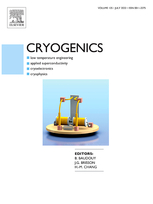
Comportement du béton renforcé à des températures cryogéniques.
Behaviour of the reinforced concrete at cryogenic temperatures.
Auteurs : DAHMANI L., KHENANE A., KACI S.
Type d'article : Article
Résumé
Concrete has successfully been used at extremely low temperature (-160°C) for the storage of liquefied natural gas. Such use will induce a cycle of cooling every time a container is filled. In addition, lack of control, as for example a leak may produce a sudden temperature change. Some knowledge of concrete properties under these conditions is therefore necessary for successful design and operation. The first and basic cause of the failure of concrete is repeated freezing (thawing) of moisture contained in the pores, microcracks, and cavities of the concrete. On transition to ice, water existing in the free state in cracks increases in volume, expanding the recess in which freezing occurs. A reduction in strength below the initial value is to be expected and further cycle of freezing and thawing have a further marked effect. The main objective of this paper is to describe the principal reasons for the reduction in strength and structural damage (frost damage) of concrete following repeated freeze-thaw cycles. Some experimental work was carried out at the Institute of Cryogenics, University of Southampton, UK, to determine what happens to water in concrete during the freezing transition. [Reprinted with permission from Elsevier. Copyright, 2007].
Détails
- Titre original : Behaviour of the reinforced concrete at cryogenic temperatures.
- Identifiant de la fiche : 2008-0467
- Langues : Anglais
- Source : Cryogenics - vol. 47 - n. 9-10
- Date d'édition : 09/2007
Liens
Voir d'autres articles du même numéro (4)
Voir la source
Indexation
-
CREEP OF COPPER AT CRYOGENIC TEMPERATURES.
- Auteurs : YEN C.
- Date : 1984
- Langues : Anglais
- Source : Cryogenics - vol. 24 - n. 7
Voir la fiche
-
FISSURATION A BASSE TEMPERATURE DU ZINC POLYCRI...
- Auteurs : PIELA K.
- Date : 1980
- Langues : Polonais
- Source : Arch. Hut. - n. 4
Voir la fiche
-
FLUAGE DISCONTINU DANS LE ZIRCONIUM AUX TEMPERA...
- Auteurs : AKSENOV V. K.
- Date : 1982
- Langues : Russe
- Source : Fiz. nizk. Temp. - vol. 8 - n. 5
Voir la fiche
-
THE STRUCTURAL STATE AND ITS ASSOCIATION WITH L...
- Auteurs : VERKIN B. I.
- Date : 1983
- Langues : Anglais
- Source : Cryogenics - vol. 23 - n. 4
Voir la fiche
-
CRYOGENIC MECHANICAL PROPERTIES OF SUPERALLOY M...
- Auteurs : FULTZ B.
- Date : 1984
- Langues : Anglais
- Source : Cryogenics - vol. 24 - n. 12
Voir la fiche
